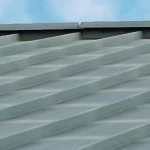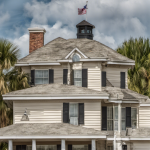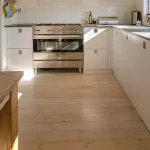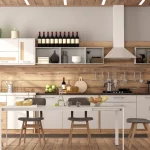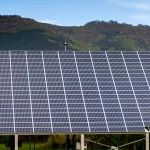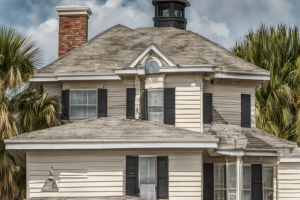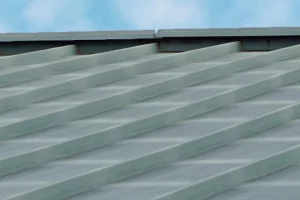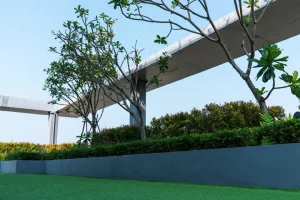
Introduction
When it comes to roofing materials, the choices can be overwhelming. With so many options available, how do you decide which suits your home? This article will explore the 12 types of roofing materials you can choose from, each with its unique characteristics and lifespan.
Overview of Roofing Materials Options
From asphalt composite shingles to metal shingles, wood shakes to clay tile, there is a wide range of roofing materials to suit every budget and aesthetic preference. Whether you're looking for durability, longevity, or a specific design, understanding the options available is crucial in making an informed decision.
Importance of Choosing the Right Roofing Material
Suitable roofing material is essential for your home's long-term protection and style. It not only affects the overall appearance of your property but also impacts its energy efficiency and durability. By choosing the appropriate roofing material, you can ensure that your investment lasts many years.
Cost Considerations
It's important to note that the cost of a roof replacement can vary significantly depending on the material chosen and the roof size. On average, homeowners in the United States can expect to spend around $8,314 for a new roof. However, it's crucial to weigh the upfront costs against the lifespan and benefits of each material to determine the most cost-effective choice for your specific needs.
With the knowledge in this guide, you'll be well-equipped to decide on the best roofing material for your home. Whether you value longevity, aesthetics, or ecological sustainability, there's a roofing material out there that's perfect for you. So let's dive in and explore the 12 types of roofing materials available today.
Asphalt Composite Shingles
If you are looking for a popular and cost-effective roofing material, then asphalt composite shingles might be the perfect choice. These shingles are widely used in North America for their affordability and versatility. They come in various styles, colors, and textures, allowing you to find the perfect match for your home's aesthetic.
Characteristics of asphalt composite shingles
Asphalt composite shingles are made from asphalt, fiberglass, and mineral granules. They are lightweight, easy to install, and provide excellent protection against the elements. These shingles are also fire-resistant and can withstand strong winds, making them a durable and reliable option for your roof.
The average lifespan of asphalt composite shingles
Although asphalt composite shingles are not the longest-lasting roofing material, they offer a decent lifespan. On average, you can expect these shingles to last between 12 and 30 years. The lifespan will vary depending on various factors, including the quality of the shingles, the climate conditions in your area, and the level of maintenance they receive.
When considering asphalt composite shingles, it's essential to remember that they may not be as durable as some other roofing materials. However, their affordability, ease of installation, and wide range of options make them popular with many homeowners.
When choosing the suitable roofing material for your home, it's essential to consider factors such as lifespan, cost, durability, and aesthetics. By weighing these factors and understanding the characteristics of each type of roofing material, you can make an informed decision that suits your budget and style.
Metal Shingles
If you're considering different roofing materials, metal shingles are worth considering. They offer several advantages over traditional roofing options.
Advantages of metal shingles
Metal shingles are versatile and can be designed to resemble other roofing materials like wood shakes or clay tile, giving your home a classic aesthetic. Additionally, they are available in a wide range of colors, allowing you to customize your roof to suit your style. Another advantage is their durability. Metal shingles can withstand harsh weather conditions, including strong winds and heavy snow, without cracking or warping. They are also fire resistant, providing additional protection for your home.
Longevity of metal shingles
One of the most appealing features of metal shingles is their lifespan. Proper maintenance means metal roofs can last anywhere from 30 to 50 years. This longevity makes them a cost-effective option in the long run, as they require fewer repairs and replacements than other roofing materials. Additionally, many metal shingles come with warranties, giving you peace of mind knowing that your investment is protected.
Metal shingles are a fantastic roofing choice due to their versatility, durability, and lifespan. Whether you prefer the look of wood shakes or the elegance of clay tile, metal shingles can offer the desired appearance while providing long-lasting protection for your home. You should consider the different styles and options available to find the perfect metal shingle roofing solution for your needs.
Wood Shakes
Appearance and features of wood shakes
Wood shakes are an excellent choice if you're looking for an attractive roofing material that adds a touch of natural beauty to your home. These rustic-style shingles have a charming, rustic appeal that can enhance the overall aesthetic of your property. Wood shakes are typically made from cedar or redwood and have a distinctive, uneven texture that gives them a unique and timeless look. Their warm tones and natural variations in color create a warm and inviting appearance, perfect for homes with a traditional or natural design style.
Wood shakes also offer excellent insulation properties, keeping your home cool in the summer and warm in the winter. The natural fibers of the wood provide a natural barrier against the elements, protecting them from rain, wind, and snow. This can help reduce energy consumption and lower utility bills, making wood shakes a sustainable and cost-effective choice in the long run.
The expected lifespan of wood shakes
While wood shakes are undeniably beautiful, it's essential to consider their lifespan when choosing roofing materials. Wood shakes generally have a lifespan of 20 to 60- years lifespan, depending on the local climate and maintenance. Regular maintenance, such as cleaning and treating the shakes, can help extend their lifespan and ensure their durability. However, it's worth noting that wood shakes are generally less durable than other materials like slate or metal. So, it's essential to assess your specific needs and budget to determine whether wood shakes are the right choice.
Wood shakes are an attractive and energy-efficient roofing option that can enhance the visual appeal of your home. They can last for several decades with proper care and maintenance, providing you with a durable and timeless roofing solution. However, it's essential to weigh the pros and cons, as well as consider your specific circumstances, before making a final decision on whether to choose wood shakes as your roofing material.
Clay Tile
Durability and Benefits of Clay Tile
Clay tile is a popular choice for roofing materials due to its impressive durability and numerous benefits. This roofing material is known for its ability to withstand harsh weather conditions and last for over a century. With proper maintenance, clay tile roofs can surpass the century mark, making them an excellent long-term investment for homeowners.
One of the critical advantages of clay tile is its resilience against fire and extreme temperatures. This material is fireproof, providing an added layer of safety for your home. Additionally, clay tile roofs excel in hot climates as they naturally radiate heat, keeping your home cooler and reducing energy costs.
Aside from its functional advantages, clay tile adds elegance and sophistication to any home. With its distinct, earthy appearance, clay tile roofing can enhance the overall aesthetic appeal of your property.
While clay tile comes with a higher upfront cost than other roofing materials, its long-lasting nature makes it a cost-effective choice in the long run. With proper installation and maintenance, clay tile roofs can last well over a century, providing peace of mind and ensuring that your investment stands the test of time.
Concrete Tile
Concrete tile is an excellent option for your roofing needs if you're looking for a cost-effective alternative to clay tile. Made from a blend of cement, sand, and water, concrete tile offers durability and longevity at a lower price point.
Cost-effective alternative to clay tile
One of the key advantages of concrete tile is its affordability compared to clay tile. While clay tile is known for its timeless beauty, it can come with a hefty price tag. Conversely, concrete tile offers a similar aesthetic appeal but at a fraction of the cost. This makes it an attractive choice for homeowners looking to achieve the look of clay tile while staying within their budget.
The expected lifespan of concrete tile
Concrete tile is a durable roofing material that can last 50 years or longer with proper maintenance. Unlike other roofing options that require frequent repairs or replacements, concrete tile offers a long lifespan, providing peace of mind and saving you money in the long run. With its excellent resistance to fire, wind, and hail, concrete tile is designed to withstand the elements and protect your home for decades.
Concrete tile is an affordable alternative to clay tile when considering roofing options. Its longevity, durability, and attractive appearance make it a popular choice for homeowners. You can enjoy the benefits of a concrete tile roof for many years with proper installation and maintenance.
Slate Shingles
Unique characteristics of slate shingles
When considering roofing materials, slate shingles stand out for their unique characteristics. These natural stones are known for their elegant appearance, smooth texture, and stunning range of colors, making them a popular choice for homeowners seeking a sophisticated aesthetic. Not only do slate shingles enhance the overall curb appeal of your home, but they also offer exceptional durability and resilience.
Impressive longevity of slate shingles
One of the most remarkable features of slate shingles is their extraordinary longevity. Unlike many other roofing materials, slate shingles can withstand the test of time, boasting an impressive lifespan of 75 to 150 years, if not more. This means that once you install slate shingles on your roof, you can enjoy their benefits for several generations. This exceptional durability makes slate shingles a cost-effective choice in the long run, eliminating the need for frequent repairs or replacements.
In addition to their longevity, slate shingles also provide excellent resistance against fire, ensuring the safety of your home and loved ones. Furthermore, they are resistant to rot, mildew, and pests, offering a reliable, low-maintenance roofing solution. However, it is important to note that the installation of slate shingles requires professional expertise due to their weight and delicate nature.
Regarding roofing materials, slate shingles offer a combination of timeless beauty and exceptional longevity. Investing in slate shingles not only enhances the overall aesthetics of your home but also provides you with peace of mind, knowing that your roof will withstand the elements for many decades to come.
Conclusion
Final thoughts on choosing roofing materials
Choosing the right roofing material is an important decision that can significantly impact the lifespan and aesthetics of your home. With a wide variety of options available, it's essential to consider factors such as durability, longevity, cost, and aesthetic appeal.
There are 12 roofing materials to choose from, each with unique features and benefits. For instance, slate shingles are costly but can last an impressive 75 to 150 years or more. Standing seam metal roofing is fireproof and has a lifespan of 30 to 50 years. Synthetic slate is a lightweight alternative to natural slate with a warranty of up to 50 years.
If cost is a significant concern, asphalt composite shingles are popular, lasting 12 to 30 years. Metal shingles and shakes offer a traditional look while providing a lifespan of 30 to 50 years. Clay tile is another durable option that can endure for over a century.
Wood shingles and shakes have an attractive appeal but have a shorter lifespan of 20 to 60 years. Membrane roofing, such as EPDM, can last 20 to 35 years and offers a synthetic alternative. Concrete tiles are a less expensive alternative to clay and last 50 years or longer. Living roofs provide an eco-friendly option; built-up roofing (BUR) can last 20 to 30 years.
Ultimately, it's essential to carefully consider your needs, budget, and the climate in your area when selecting a roofing material. By doing so, you can choose the right option and ensure the longevity and beauty of your home for years to come. The average cost nationwide for a roof replacement is $8,314, but prices vary. Additionally, certain regions, like those prone to hurricanes or heavy storms, may call for more durable and weather-resistant materials to protect your home. If you’re in the Sunshine State, taking advantage of a Florida roofing company promotion could help you save money while upgrading to a roof that’s suited for the local climate. Be sure to compare options and work with trusted professionals to get the best value for your investment.

James Smith is our editor. He is an accomplished and versatile news writer with over a decade of experience covering a wide range of topics, including politics, business, and real estate. Throughout his career, James has been dedicated to uncovering the truth and presenting unbiased, factual reporting to his audience.


